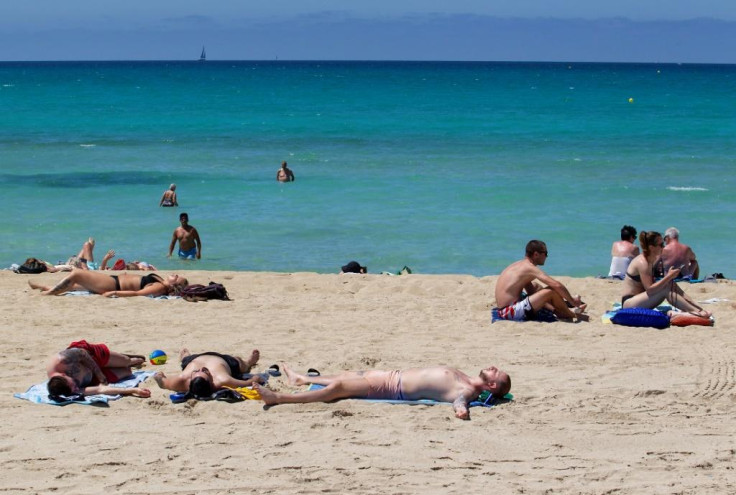Holidaymakers 'risk their lives' by buying cocktails in popular Spanish town
A town in Valencia is known to have illegal cocktail vendors on beaches

Holidaymakers have been warned against illegal drink vendors at Spanish beaches, saying they would be "risking their health" by drinking those cocktails.
As the heatwave is wreaking havoc across Southern Europe, cocktail beach vendors, who especially sell mojitos, have returned to the beaches in the Spanish town of Benidorm. Considering Spain is one of the most visited destinations among travellers from the UK, hundreds of tourists from the country are expected to head to Benidorm.
Why tourists must avoid beach cocktails?
With the summer travel season underway, people who are taking a trip to the town in Valencia have been cautioned that drinks being sold at the beaches may contain E-Coli bacteria and traces of human faeces, according to The Sun.
The illegal mojitos sold by these beach vendors have been termed as "mojiteros". It is understood that sellers handle the products with their bare hands in car boots or on the floor, with almost no sanitary control. The drinks are often sold for half the price of the ones sold at beach-front bars. But by consuming these discounted cocktails, tourists on most occasions risk falling ill.
As per government spokesperson Cristina Escoda, the presence of these vendors on the city's sandbanks has "increased" since the beginning of summer, reported Spanish newspaper Informacion.es. According to Mirror, Benidorm city council has increased police surveillance significantly on the city's popular beaches during the summer season.
"Taking a simple walk, you can see an incessant trickle of people carrying out these illegal activities with total normality. This not only affects the image we offer to tourists but also seriously harms the city's hospitality sector.
"It can put the health of consumers at risk. The mojiteros handle the products with their hands in the trunk of a car or on the ground itself and obviously have no sanitary control," warned Escoda.
The spokesperson of the government went on to add that at least 16 officers will be deployed during the day's busiest hours.
"It is carried out not only on the beach and on the promenades but also from the water and from the air thanks to the zodiac and drone service," added Escoda.
Benidorm to launch campaigns for awareness
Meanwhile, Benidorm's council is set to launch an information council in the coming days to help people have the best time out of Benidorm's beaches. The campaign will include health recommendations related to heat and high temperatures and will also make the tourists aware of the consumption of drinks without sanitary control.
In another campaign, the local police "will continue to act and pursue unauthorised practices on the beaches and denounce and punish offenders." If illegal vendors are caught, they will be prosecuted and their products confiscated.
Earlier, Spain's Met Office issued a red alert, warning of "extreme risk" to the health of holidaymakers in Mallorca as the Charon heatwave continues to spread.
Mallorca, one of the most popular party islands of Spain, is just an hour's flight away from Benidorm, and could experience temperatures up to 43°C in the coming days. Tourists and locals have been urged to remain hydrated at all times, remain in the shade and avoid drinking too much alcohol and caffeine as summer is getting extreme in countries including Spain, Italy, France, Croatia, and Greece.
Weather experts have already declared 2023 an El Niño year - a natural phenomenon that happens regularly and causes fluctuations in the global climate.
The extremely hot weather has led to the death of at least three people in Italy as eight red alert warnings have come in place across the country.
Meanwhile, it was earlier reported that if tourists from the UK are travelling to Spain and will be staying with their relatives or friends, they'll need to provide an invitation letter to enter the country. The letter was not needed when the UK was part of the European Union (EU). If a traveller is entering the country through the Spanish border force, they may be asked to show the letter as proof of where they are residing.
© Copyright IBTimes 2025. All rights reserved.






















